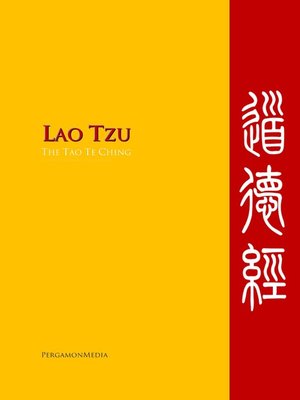
Sign up to save your library
With an OverDrive account, you can save your favorite libraries for at-a-glance information about availability. Find out more about OverDrive accounts.
Find this title in Libby, the library reading app by OverDrive.



Search for a digital library with this title
Title found at these libraries:
| Library Name | Distance |
|---|---|
| Loading... |
The Tao Te Ching, Daodejing, or Dao De Jing, also simply referred to as the Laozi is a Chinese classic text. According to tradition, it was written around 6th century BC by the sage Laozi or Lao Tzu - literally meaning "Old Master", a record-keeper at the Zhou dynasty court, by whose name the text is known in China. The text's true authorship and date of composition or compilation are still debated, although the oldest excavated text dates back to the late 4th century BC. The text, along with the Zhuangzi, is a fundamental text for both philosophical and religious Taoism, and strongly influenced other schools, such as Legalism, Confucianism and Chinese Buddhism, which when first introduced into China was largely interpreted through the use of Daoist words and concepts. Many Chinese artists, including poets, painters, calligraphers, and even gardeners, have used the Daodejing as a source of inspiration. Its influence has also spread widely outside East Asia, and is amongst the most translated works in world literature. The Wade–Giles romanization "Tao Te Ching" dates back to early English transliterations in the late 19th century; its influence can be seen in words and phrases that have become well established in English. "Daodejing" is the pinyin romanization.







